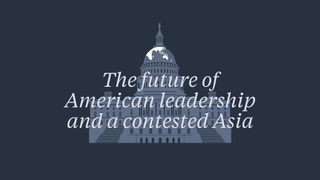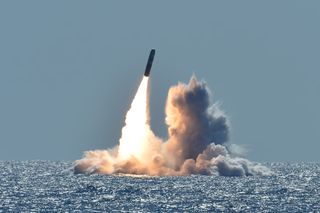Foreword
On 20 November 2024, the United States Studies Centre (USSC) hosted the second annual Sydney International Strategy Forum (SISF) on ‘The future of American leadership and a contested Asia.’ Held two weeks after the 2024 US presidential election, SISF brought together key national security strategists from the Biden-Harris and Trump-Pence administrations, along with other experts and senior policymakers from the United States, Australia, Japan, Korea and elsewhere, to assess the election outcome and its impact on the world.
The forum provided a deep dive into how the new Trump administration might address challenges such as China’s rising influence, regional security architecture, and economic integration in the Indo-Pacific. In exploring the administration's multilateral and alliance strategies, particularly in the context of emerging threats and strategic competition in the region, the event provided unrivalled insight into the next steps on AUKUS and defence cooperation, US trade policy and the decoupling debate.
Conference program
View the full conference programWelcome and opening remarks
Dr Michael Green, Chief Executive Officer of the United States Studies Centre, opened the conference by saying that “after the US election, there is uncertainty but there should also be sources of real certainty in this alliance and in American engagement in the Indo-Pacific.” He noted that USSC polling consistently finds that Australia, Japan and the United States are aligned on key questions of China strategy, the importance of alliances, derisking, and democratic values.
Dr Green spoke to the bipartisan US political support for alliances with Australia and Japan, with debates in the United States about the value of its alliances in Asia now largely resolved. He also acknowledged that despite areas of continuity for the Australia-US alliance, there are “a lot of questions about what comes next with a new administration.” Answering those questions would be a key theme of the conference.
Reflections on the Alliance after the election
Dr Kevin Rudd AC, Australian Ambassador to the United States, delivered an address reflecting on the 2024 presidential election results and the future of the Australia-US alliance. The ambassador highlighted that the Australian embassy and the Australian Government “are ready to work closely with the new Trump administration to continue to realise the benefits of what is a very strong economic and security partnership.”
In an age of strategic competition, Ambassador Rudd reiterated the embassy’s commitment to broadening the bilateral relationship moving forward, where “Australia’s relationship with the United States has never been more relevant or important.” He pointed to opportunities for collaboration across various domains, asserting that Australia and the United States can work together to maintain the regional balance via defence cooperation through AUKUS and diplomatic engagements through the Quad, ASEAN, and other regional partnerships.
Ambassador Rudd stated that the AUKUS partnership will help deter threats and expand the defence industrial base, making it a strategic priority for the United States, Australia and the United Kingdom. He pointed to Australia’s progress in implementing both Pillar I and Pillar II of AUKUS, including actively building a skilled workforce to support Australia’s nuclear-powered submarine program.
Session 1 | US leadership: Structure and agency
Panel discussion: What do we need to know about the new US administration?
Panel discussion with former Deputy Assistant Secretary of Defense for East Asia Heino Klinck, former US Assistant Secretary of Defense for Strategy, Plans and Capabilities Dr Mara Karlin, former US Ambassador to the European Union Kristen Silverberg, and former Australian Ambassador to the United States the Hon. Arthur Sinodinos AO, moderated by Sydney Morning Herald political editor and international editor Peter Hartcher.
Key points
- Restoring deterrence is a priority.
- Australia is in a good position with Trump's transactional approach to foreign policy.
- While there are some anomalous picks for the US Cabinet, it is too early to tell how this will impact processes and outcomes.
As Washington navigates an increasingly complex global security environment, the panellists agreed that restoring deterrence will likely be a central objective for the second Trump administration. Dr Mara Karlin, former US Assistant Secretary of Defense for Strategy, Plans and Capabilities, emphasised a two-pronged approach: demonstrating capability while standing firm with allies and partners. Heino Klinck, former US Deputy Assistant Secretary of Defense for East Asia, mentioned AUKUS as a powerful tool to restore deterrence. While he acknowledged that adjustments within Pillar I might be necessary to align with a Trump administration, he added: “I do not see them scuttling it.”
Much of the discussion also explored the implications of Trump’s “transactional” approach to foreign policy. Kristen Silverberg, President and COO of Business Roundtable, explained that Trump prioritises equity over the broader benefits of alliances, such as the benefits the United States enjoys from these partnerships. Arthur Sinodinos AO, former Australian Ambassador to the United States, emphasised that sustaining US commitment to Australian priorities requires framing them as aligned with US interests. As he put it: “If it is America First, it cannot be America only.” The remaining question, Sinodinos noted, is how much US allies will be constrained by the policy directions the United States chooses to take.
Accordingly, Silverberg stated that Canberra holds “agency” in shaping US foreign policy, particularly under a transactional administration “seeking opportunities” and operating with a “high-risk tolerance.”
Given Australia’s ongoing defence commitments and trade surplus, Silverberg pointed to Canberra’s strong position working with a future Trump administration. Klinck shared a similar sentiment, adding that decision-making in the second Trump term will focus on a country’s defence spending and trade deficit. Accordingly, Silverberg stated that Canberra holds “agency” in shaping US foreign policy, particularly under a transactional administration “seeking opportunities” and operating with a “high-risk tolerance.”
Turning to other regions, the panellists reflected on defence and foreign policy cabinet picks, discussing how the second Trump administration might navigate tensions with China and Russia. While some appointments might be considered “anomalous,” the speakers emphasised that it is too early to assess their impact on foreign policy processes and outcomes in a meaningful way. Despite this uncertainty, Klinck maintained that addressing Chinese competition would remain the foremost US foreign policy priority. He also expressed confidence that the Trump administration would not entirely abandon support for Taiwan or Ukraine, even as some Republican factions advocate for restricting funding for the latter.
Keynote address: The future of US engagement with the Indo-Pacific
US Deputy Secretary of State Dr Kurt Campbell
Key points
- Areas of continued US bipartisanship include AUKUS, the contested Pacific, and various technology initiatives, ranging from AI to electronic commerce.
- It is important to sustain the appropriate amount of funding and resources for US diplomatic, aid and Coast Guard engagement with the Pacific Islands — a region of rising strategic importance.
- To ensure regional stability, “guardrails” are essential to the US approach to China, and effective US policy should focus on building alliances with countries that share US values and interests.
In his keynote address, Dr Kurt Campbell, US Deputy Secretary of State, outlined the challenges that will face the Trump administration in the Indo-Pacific and strategies to manage the US-China relationship. Dr Campbell called for a “creative” and “innovative” approach to the region, noting that the incoming administration must find ways to build and sustain partnerships.
One key initiative he highlighted was AUKUS, saying it has broad bipartisan support and remains crucial to US security interests. With Trump’s inclination to turn inward, Dr Campbell cautioned that “most of the hard yards will be in the Pentagon,” and continued support and attention will be needed to ensure that embassies and consulates can effectively support AUKUS.
Beyond AUKUS, Dr Campbell emphasised the strategic importance of the Pacific Islands. With China seeking to expand its influence, the region remains highly contested. Dr Campbell warned that the United States should expect “strategic surprises” in this region, highlighting that future engagement should involve increased diplomacy, USAID support, and enhanced Coast Guard cooperation — efforts that must be sustained through adequate resourcing.
He also recommended leveraging innovation and economic statecraft to strengthen Washington’s presence in the region. Dr Campbell pointed to areas like digital commerce and critical minerals as opportunities for cooperation. Such initiatives, he argued, would reaffirm the US role in the region — not only as a leader but as a partner. As he said: “If we are not perceived as an actor [who is] engaged, optimistic, open, and welcoming of innovation and connectivity, we will not succeed in the Indo-Pacific.”
Finally, Dr Campbell addressed the US approach to China. Acknowledging that the second Trump administration will likely adopt a different stance than its predecessor, he stressed the importance of “guardrails” in the US-China relationship for the entire region's stability. He cautioned against overestimating the ability to change China’s trajectory, arguing that effective policy focuses on building alliances with countries that share US interests and values.
Session 2 | Beyond the White House: Congress and democracy
Keynote address: The view of Asia from Congress
Former US Congresswoman Stephanie Murphy
Key points
- Congress' intense focus on competition with China overlooks other issues in Asia that also affect Americans.
- While bipartisan efforts on China have led to impressive policy initiatives, there is a risk of groupthink, highlighting the need for US allies to help balance the approach.
- Political dysfunction, budgetary pressures, and the changing role of agencies complicate effective policy execution and the congressional agenda.
Former US Congresswoman Stephanie Murphy explored the congressional foreign policy agenda toward Asia in her keynote address. She first emphasised the region's importance, noting "what happens in Asia directly impacts the lives of Americans" as it is home to some of the world's fastest-growing economies and US allies. However, she also pointed out that Congress tends to view Asia through a "soda straw," focusing primarily on competition with China.
This approach has produced bipartisan legislation on defence, critical minerals, and technology. However, Murphy questioned whether Congress is falling victim to “groupthink” driven by a domestic political climate where neither party wants to appear “soft on China.” Here, she emphasised the importance of the US network of allies and partners, describing them as "essential voices of reason for helping us navigate these challenges."
Murphy continued by exploring Congress' approach to economic and security challenges in Asia. She noted that Congress has historically focused on "strengthening alliances and building new partnerships." Examples included the Pacific Deterrence Initiative, enhanced defence cooperation with South Korea and Japan, and support for AUKUS. In her words, "addressing security challenges, just like economic challenges, doesn't happen in a black box in Washington. America's allies in Asia are critical security partners."
The former member of Congress concluded by exploring various procedural challenges Congress faces, positioning political dysfunction as a significant obstacle. Murphy noted that much of US strategy on China occurs behind "closed doors in classified settings," limiting a practical whole-of-government approach. Additionally, government agencies like the Departments of Commerce and Treasury are still adapting to their evolving roles in national security.
Murphy warned that congressional stalemates and the struggle to perform “basic functions” are eroding public trust and undermining Washington’s capacity to lead in the region. This, she shared, is particularly troubling, as "Congress does see Asia, not just as a theatre for competition, but a region for extraordinary potential and promise."
Panel discussion: What do we need to know about the new US Congress?
Panel discussion with former US Congresswoman Stephanie Murphy, Non-Resident Senior Fellow at the United States Studies Centre Lester Munson, and Non-Resident Senior Fellow at the United States Studies Centre Bruce Wolpe, moderated by United States Studies Centre Director of Research Jared Mondschein.
Key points
- The significant power now held by Trump and the Republican Party is tempered by structural factors. Tight majorities, the Democratic Party’s disciplined leadership, Trump’s one-term status, and ongoing elections on a congressional level may force a centrist strategy on legislating.
- It is unhelpful to be predictive at this stage given that congressional dynamics are mercurial by nature and depend on confirmations and other events.
- Australians should pay particular attention to how the new Congress acts regarding the US defence budget, trade and competition with China.
An expert panel discussed the priorities and objectives of the incoming Republican-controlled Congress. Although in the 2024 election Republicans won the presidency and majorities in Congress, the panellists warned against assuming an easy path forward for Trump's legislative agenda.
Former US Congresswoman Stephanie Murphy highlighted how tight majorities in Congress “almost force a centre-out strategy on legislating,” an approach compounded by the disciplined leadership of House Democrats. Bruce Wolpe, Non-Resident Senior Fellow at the United States Studies Centre, noted that Democrats are likely to capitalise on any Republican tactical missteps.
With Trump assuming the presidency as a "lame duck" who cannot run for re-election, Lester Munson, Non-Resident Senior Fellow at the United States Studies Centre, added that Senate Republican leadership must prioritise their own re-election efforts. This, he argued, would act as a "check" on Trump's power and the Republican majority's objectives. Wolpe countered that Trump, now free from facing voters, could wield executive powers more freely and potentially bypass Congress altogether.
The panel then shifted to practical matters, discussing what Congress might do under a Trump administration. Munson suggested that Australians should "expect things that you're not expecting to happen," while Murphy said extending Trump's tax cuts would be a top priority, alongside tariffs and deportations. Wolpe agreed, before noting a low chance of a government shutdown as it would hurt the party in power.
Concluding the discussion, the panellists turned their attention to Australia’s interests. Munson pointed to the defence and international aid budgets, emphasising that larger budgets would give policymakers more flexibility in engaging with the Indo-Pacific region. However, he cautioned that this spending will "be targeted by a lot of Trump folks." Murphy added that Trump's zero-sum approach to trade deficits will likely influence the actions of the Republican-controlled Congress. Meanwhile, Wolpe concluded that Australia is in a strong position with bipartisan support for the US-Australia alliance in Washington. He also warned that navigating US trade with China would remain a key challenge for Australian policymakers.
Panel discussion: In the year of elections, is democracy backsliding?
Panel discussion with Editor-at-Large for The Australian Paul Kelly, Non-Resident Senior Fellow at the United States Studies Centre Professor Benjamin Reilly, and Non-Resident Senior Fellow at the United States Studies Centre Dr Lavina Lee, moderated by Australian Broadcasting Corporation senior presenter Geraldine Doogue AO.
Key points
- Democracy is struggling to deliver globally, prompting a shift away from this form of governance.
- Democratic values are a key battleground in this era of strategic competition. However, with the decline of US democracy promotion, panellists questioned whether Australia should step in to fill the gap.
- Domestically, Australia’s culture and voting system is different from the United States, making democratic backsliding within Australia less likely.
Panellists examined the likelihood of democratic backsliding in Australia and the broader Indo-Pacific in the wake of Donald Trump's election. The discussion began by noting that democracies are facing challenges globally, particularly concerning economic growth and inflation. Paul Kelly, Editor-at-Large for The Australian, pointed to the erosion of shared values in liberal democracies and the strain imposed by the digital age as contributing factors. Dr Lavina Lee, Non-Resident Senior Fellow at the United States Studies Centre, offered a more optimistic perspective, highlighting democratic resilience in countries like Taiwan and India during their 2024 elections.
Despite concerns about global trends, panellists agreed that Australia remains insulated from the political realignment around democracy in the United States. Kelly argued that structural factors and political culture make the emergence of a Trump-like figure unlikely in Australia, stating: "No parliamentary democracy, no Westminster democracy, such as Britain or Australia, would produce a Donald Trump." Similarly, Professor Benjamin Reilly, Non-Resident Senior Fellow at the United States Studies Centre, noted that while some countries have drifted toward illiberalism, Australia remains relatively unpolarised — a promising sign of democratic stability. However, Professor Reilly conceded that maintaining a rules-based international order will become increasingly difficult. He continued: "I think the danger for Australia is we're going to become a much lonelier country."
The conversation then turned to how democracy is perceived in the Global South. Dr Lee explained that developing nations often view democratic governance in an "instrumental" manner, assessing its ability to deliver economic development. She positioned the authoritarian capitalist model put forth by China as a significant challenge to democracy across Asia and the Pacific.
In this age of strategic competition, Kelly stressed the importance of democracy promotion, noting that China has "made it absolutely clear that... there is a competition about governance models." Professor Reilly, however, questioned how Australia could advocate for democracy without appearing to be an interfering Western power. While there is substantial support for democracy promotion among the Australian public, he warned that cultural differences and local sensitivities complicate this approach.
Session 3 | The security challenges of 2025
In conversation: Geopolitical dynamics in 2025
Air Chief Marshal Sir Angus Houston AK, AFC, in conversation with Professor Peter Dean, Director of Foreign Policy and Defence, United States Studies Centre
Key points
- The global security situation has worsened, with rising tensions in multiple regions globally. Missiles, drones and other threats like climate change are increasing security risks globally.
- The recommendations of Australia’s 2023 Defence Strategic Review have been integrated into the 2024 National Defence Strategy. The now-biennial approach to defence strategy enables Australia to adapt to changing security dynamics.
- AUKUS is central to Australia's defence strategy as it strengthens deterrence and the alliance with the United States. The agreement enhances Australia's ability to defend itself against threats through a posture of denial and deterrence.
In a fireside chat between Air Chief Marshal Sir Angus Houston AK, AFC, former Chief of the Australian Defence Force and Professor Peter Dean, Director of Foreign Policy and Defence at the United States Studies Centre, the two explored the growing geopolitical tensions in the Indo-Pacific and the impact on Australia's security landscape.
Sir Angus began by reflecting on how the strategic environment has worsened in recent years, observing "a troubling alignment between Russia, China, North Korea, and Iran." He stated that the threat of China's continued military expansion, support for Russia's wartime economy and activity in the South China Sea, undermines the region's stability. However, he noted that the military build-up in the region is not limited to China, citing instances of missiles increasingly disrupting supply chains, such as Houthi rebels firing missiles against ships in the Red Sea. As a result, Sir Angus argues that Northern Australia needs "a much more robust defence... particularly against the threat of incoming missiles and drones."
Through his remarks, Sir Angus also emphasised the significance of non-traditional security threats like climate change, characterising it as a major security challenge "that people rarely mention." With this, he questioned the incoming US administration's receptiveness to regional climate concerns, given its apparent intent to deprioritise climate policy.
To manage these established and emerging security threats, Sir Angus highlighted the importance of the recommendations from Australia’s 2023 Defence Strategic Review, many of which are already being implemented. He commended the now-biennial approach to defence strategy for allowing Australia to respond to rapidly shifting security dynamics. He also suggested that Trump could push Australia to increase its defence spending up to three per cent of gross domestic product.
The conversation also touched on defence agenda-setting, with both Professor Dean and Sir Angus highlighting the enduring importance of the Australia, New Zealand, and United States Security Treaty (ANZUS), AUKUS, and the Guided Weapons and Explosive Ordnance enterprise. Regarding AUKUS, Sir Angus emphasised its role in strengthening the US-Australia alliance while maintaining “a good deterrent posture... [and] a policy of denial” — a strategy he expects will endure through the Trump presidency.
Panel discussion: How should we approach the security challenges in 2025?
Panel discussion with Executive Director of the Sasakawa Peace Foundation Nobukatsu Kanehara, former US Deputy Assistant Secretary of Defense for East Asia Heino Klinck, former US Assistant Secretary of Defense for Strategy, Plans and Capabilities Dr Mara Karlin, and Director of Foreign Policy and Defence at the United States Studies Centre Professor Peter Dean, moderated by United States Studies Centre Chief Executive Officer Dr Michael Green
Key points
- Amid growing pressure from different theatres of competition, the United States and its allies and partners identify China as the key strategic challenge.
- US allies and partners are increasingly converging on their assessments of the security environment and the importance of deterrence. However, efforts are required to enhance deterrence beyond the military realm and foster multilateral dialogue on extended nuclear deterrence.
- China’s behaviour is alienating governments and deepening linkages between US allies across the Indo-Pacific. US leadership and coordination with allies and partners remains vital, and Tokyo and Canberra should prepare for discussions that entail greater risk and tough choices.
Panellists discussed how to juggle competing theatres of competition and pressure, identifying China as the top regional security priority.
Dr Mara Karlin, former US Assistant Secretary of Defense for Strategy, Plans and Capabilities, highlighted the “punchy and pithy” focus of the 2022 US National Defense Strategy she led, which stipulated that “there was one priority for the United States, and that was China” — the only country with the will, and increasingly the capability, to fundamentally reshape the global security order.
Nobukatsu Kanehara, Executive Director of the Sasakawa Peace Foundation, conveyed the shared sense of urgency between Washington and Tokyo, emphasising the importance of deterrence to counter China’s growing military and economic heft. Echoing this sentiment, Professor Peter Dean, Director of Foreign Policy and Defence at the United States Studies Centre, noted that US allies and partners are converging on a strategy of deterrence, which is the core of key recent strategic documents in Australia, the United States, Japan and South Korea.
However, Heino Klinck, former US Deputy Assistant Secretary of Defense for East Asia, argued that deterrence has failed in recent years, citing major wars in Europe and the Middle East, and growing Chinese aggression. He advocated for the importance of enhancing deterrence not just in the military arena, but by mobilising all elements of national power, such as in the economic domain. Professor Dean also called for greater attention to nuclear deterrence, acknowledging that China is “undertaking the largest expansion of a nuclear arsenal of any state since the early Cold War.” He argued that Australia’s extended nuclear deterrence dialogue with the United States is less sophisticated than US bilateral talks with Japan and South Korea and advocated for “multilateral nuclear planning” in the Indo-Pacific.
The panellists each highlighted the importance of the United States working in concert with likeminded allies, with Klinck stating that “our competitive advantage is our allies and partners.” Dr Karlin noted how China’s behaviour is alienating countries and propelling a positive shift in military investments, posture changes, and the proliferation of new partnerships across the Indo-Pacific. In particular, she highlighted how Australia-US cooperation has expanded in scope and scale in recent years, referencing AUKUS and GWEO as important examples of how countries are “collaborating in new and different and innovative ways.”
However, Klinck warned that US allies like Australia and Japan should be prepared for discussions that involve greater risk and “entail some tough choices.” Going forward, he advocated for Australia to explore the potential for bolstering its unofficial ties with Taiwan and deepening its knowledge of that operating environment.
Dr Karlin also highlighted the opportunity to expand on the NATO participation of the Indo-Pacific Four — Australia, Japan, South Korea and New Zealand. She suggested that the United States’ Asian and European allies and partner networks could be more deeply and thoroughly intertwined to promote cross-theatre cooperation.
Session 4 | The economic and technological landscape in 2025
In conversation: The US business community’s take on the election
Kristen Silverberg, Business Roundtable President and COO in conversation with Dr John Kunkel, Senior Economics Adviser, United States Studies Centre
Key points
- While the Trump administration will likely leverage tariffs to negotiate concessions with other countries, the ambition to use tariffs as a tool to reset global trade imbalances is crucial to understanding the Trump administration’s trade strategy.
- The Trump administration is likely to continue the Biden administration’s approach to technology competition with China and efforts to de-risk critical supply chains. However, the business community may be required to accelerate the de-risking process, which is currently proceeding at a slow pace.
- The Trump administration will likely implement major shifts in domestic energy policy but global regulations and high demand for clean energy products will continue to drive the private sector’s green transition.
In a fireside chat between Kristen Silverberg, Business Roundtable President and COO and Dr John Kunkel, Senior Economics Adviser at the United States Studies Centre, the two explored what a second Trump administration will mean for the business community, assessing Trump's policy agenda on tariffs, tax and regulation, technology competition with China, trade and the energy transition.
The two began by discussing the likelihood of the Trump administration introducing a universal baseline tariff measure of between 10–20%, with a robust exclusion process. Silverberg noted two distinct aspects of the Trump administration’s philosophy regarding tariff policy. On one hand, they are eager to leverage tariffs to bring countries to the table to negotiate concessions, but they also intend to use tariffs as a tool to reset global trade balances, driven by the theory that heavy use of subsidies and industrial policy in other parts of the world has permanently positioned the United States as a trade deficit country. Silverberg characterised this trade imbalances debate as “really the most important thing to understand about the Trump administration trade strategy.”
Silverberg also argued that debate over the potentially inflationary effects of tariffs could restrain Trump’s tariff agenda.
Silverberg and Dr Kunkel also discussed the future of free trade agreements in US economic policy. Silverberg did not rule out the Trump administration initiating trade negotiations with some partners or even reopening existing trade deals to make them more national security focussed. Yet, she emphasised that it is unlikely that the United States will return to a position of leading a global trade conversation about opening markets. Despite support in Congress for a more proactive trade agenda, notably among members from agricultural states, Silverberg highlighted that nobody has been willing to take on the political issues associated with negotiating and passing trade agreements.
When it comes to technology competition with China, Silverberg stated that there is unlikely to be “dramatic change” in US policy under the Trump administration. While there may be greater focus on competition around artificial intelligence, she suggested that there will be continuity with the Biden administration on efforts to de-risk critical supply chains, like advanced pharmaceuticals and critical minerals. Regardless, she noted that an "ongoing pain point about de-risking revolves around enablers for the business community.” In Silverberg’s assessment, de-risking is proceeding at a slow pace in part due to a lack of trade agreements with countries that would otherwise be beneficiaries of de-risking but currently lack the investor and intellectual property protections afforded by a formal trade deal.
The conversation also touched on the energy transition, with Silverberg stating that the Trump administration will likely implement some major shifts in domestic energy policy, including lifting the pause on approvals of liquefied natural gas exports, reversing some power plant emission rules, and doing more offshore leases.
However, Silverberg emphasised that these changes will not fundamentally stop the green transition already underway in the private sector, for two key reasons: US companies must navigate global regulations, and high demand for products will continue to drive investment and interest in the green energy space.
Panel discussion: Navigating economic security and technology competition in 2025
Panel discussion with Business Roundtable President and COO Kristen Silverberg, former US National Security Council Director for China Matthew Turpin, Executive Director of Cyber Intelligence, CyberCX Katherine Mansted, moderated by Director of Economic Security at the United States Studies Centre Hayley Channer
Key points
- Industrial policy will not be a top priority under the Trump administration, but elements of existing legislation are likely to survive.
- The United States will expand efforts to commercialise its own technology overseas.
- Loosened US regulations of technology companies and artificial intelligence are likely to impact Australia.
While industry policy will not be Trump’s top priority, Kristen Silverberg, Business Roundtable President and COO, noted that existing legislation will likely survive because the Biden and Trump administrations share the objective of revitalising US manufacturing to create more resilience around advanced technology and critical supply chains. In her view, the Trump administration is likely to reauthorise the 2021 Bipartisan Infrastructure Law and could enhance it by permitting reform to drive private sector investment. Silverberg suggested that the 2022 Inflation Reduction Act and 2022 CHIPS and Science Act would see changes, including to eligibility criteria for subsidies, but that many aspects of the legislation will likely survive due to their investments in manufacturing in Republican-leaning states.
Matthew Turpin, former US National Security Council Director for China, echoed this sentiment, suggesting that the Trump administration will seek to distance itself from the branding of Biden-era legislation while advocating for similar priorities. He emphasised that as hostility grows between China and the United States, “the level of disentanglement will likely continue to grow,” forcing major US companies to adjust their business models. However, Turpin acknowledged that the United States and China are never going to be fully coupled or decoupled, describing these as “unrealistic extremes” and that “the reality is we live on the same planet.”
Turpin expected the United States to redouble its efforts in commercialising US innovations into products, to match Chinese breakthroughs over the past 20 years in areas such as solar energy. He noted that technology controls do not necessarily harm innovation and can help to prevent China from accessing and maintaining an advantage in an industry, highlighting advanced jet engines and advanced semiconductor manufacturing as technologies with strict export control that have still maintained competitive advantage. Silverberg agreed that the business community recognises the need for export controls around some technologies to protect sensitive areas.
When it comes to Australia’s national security policy on electric vehicles, Katherine Mansted, Executive Director of Cyber Intelligence, CyberCX argued that “to ban or not to ban is the wrong conversation to be having.” She said that while Australia has led the world on issues like 5G, there is a less mature national conversation and a “whack-a-mole" mindset when it comes to consumer technologies such as drones, surveillance cameras and EVs. Mansted advocated for Australia to adopt a framework-based conversation about how to assess risk and the concept of a high-risk foreign vendor, to craft a cohesive policy that is fit for purpose for the whole of economy.
Mansted noted that many things will remain the same under Trump, including the fundamental securitisation of technology and the US willingness to intervene in the market.
However, Mansted highlighted three key differences that could impact Australia under a second Trump administration. First, the United States “taking its foot off the gas” on regulation of technology companies, with less of a heavy hand on anti-trust or competition rules, could make it harder for Australia to hold ‘big tech’ to account — “something that successive governments in Australia have been trying to do.” Second, a potential lack of alignment on AI due to Trump and his allies prioritising innovation and viewing AI safety efforts, which have been adopted by countries like Australia and the United Kingdom, as a movement that makes it harder for the United States to compete with China. Third, different views on institutions like the US Cybersecurity and Infrastructure Security Agency (CISA), which could restrict CISA’s mandate and stall recent Australia-US momentum on 'secure-by-design' for cybersecurity and critical infrastructure.
Silverberg emphasised the need for Australia to take a proactive approach to the US-Australia alliance under the Trump administration, highlighting the opportunity to enter discussions about updating the Australia-US free trade agreement, to incorporate core national security objectives.
Session 5 | The alliance agenda moving forward
Keynote address: Building on the alliance going forward
Dr Peter Sawczak
Key points
- The US-Australia alliance must be responsive to new challenges if it is to remain fit-for-purpose.
- AUKUS, force posture initiatives and economic engagement have proven to be key areas of Australia-US cooperation and reflect an “adaptive” character to Australia-US relations.
- Challenges for the alliance include navigating strategic competition, disinformation and globalised challenges that transcend geographic boundaries.
Dr Peter Sawczak, First Assistant Secretary, Geostrategy and Partnerships Division, Department of Foreign Affairs and Trade, outlined areas for cooperation in the US-Australia alliance agenda in the years ahead. Dr Sawczak explained why Australia is well-placed to manage alliance priorities and “unruly waters ahead,” saying that “history has consistently shown” that both US and Australian governments have worked to strengthen the alliance over decades.
Dr Sawczak outlined the history and “foundational character” of the alliance, but also described it as “responsive, flexible and adaptive.” He highlighted three recent areas of cooperation to demonstrate this, namely the AUKUS partnership and defence industrial base integration, deepening force posture cooperation with the United States and regional allies, and continuing trade and investment relationship between Australia and the United States.
He also praised multilateral groupings such as the NATO Indo-Pacific Four and Quad as being instrumental to regional security and stability. On economic security matters, Dr Sawczak said Australia’s critical minerals reserves mean that it is “in our national interest to develop our economic relationship in ways that ensure resilient supply chains and support rules-based, market-oriented and open trade.”
He also spoke about challenges that must be addressed to ensure the US-Australia alliance remains “match fit.” Above all, this includes the “sharpening state of strategic competition” and how to manage it while avoiding military confrontation. Doing so, according to Dr Sawczak, will require creating expectations of transparency in military power and strategic intent.
He also highlighted the dangers posed by disinformation and attempts to manipulate the global information environment, which damage international and regional stability. Dr Sawczak asserted that creating a “more effective strategic communications toolkit” is needed to address these challenges.
He also argued that this environment presents the urgent need for an “integrated approach to how we deploy all tools of our statecraft,” and for not ignoring global challenges that transcend regional and geographical lines, such as the war in Ukraine. Technological advantages and economic engagement will both be critical for this approach.
Panel discussion: How should allies approach the new administration?
Panel discussion with Member of the Japanese House of Councillors Rui Matsukawa, United States Studies Centre Chief Executive Officer Dr Michael Green, former Australian Ambassador to the United States Dennis Richardson AC, and Non-Resident Fellow at the United States Studies Centre Dr Peter Lee, moderated by Chief International Correspondent at The Australian Cameron Stewart
Key points
- Australia, Japan and other US allies should proactively engage with the new US administration to secure their own interests.
- The Trump administration is likely to push for higher defence spending commitments from US allies.
- There is an opportunity to strengthen cooperation between US allies and partners themselves.
The panel began by discussing how US allies and partners should engage with the Trump administration. The key message from Dr Michael Green, Chief Executive Officer, United States Studies Centre, was: “Don’t wait.” US allies like Australia and Japan are uniquely positioned to enter into dialogue early with the new administration and draw from a rich toolkit to articulate their interests in a way that is creative and open minded.
Dennis Richardson AC, former Australian Ambassador to the United States, stated that Prime Minister Anthony Albanese should aim for a “business-like” relationship with Trump, and acknowledged that Australia is very well-placed to do so. However, he argued that the key challenge in the early months of the Trump presidency will be for domestic Australian leadership “to ensure that the public partisanship leading into an election here in Australia does not muddy the waters.”
Rui Matsukawa, Member, Japanese House of Councillors, noted the key lesson from former Prime Minister Shinzo Abe’s relationship with Trump during his first term: “individual trust between leaders is really important.” She emphasised the need for US allies in the Indo-Pacific to work together to convince Trump that decisions benefit US interests, such as the strategic importance of maintaining peace and stability in the Taiwan Strait.
Dr Peter Lee, Non-Resident Fellow, Foreign Policy and Defence, United States Studies Centre, stated that compared to Trump’s first term, South Korea is more strategically aligned with not only the United States, but also Australia, Japan and other countries. However, key concerns in Seoul include the nuclear issue, the question of cost-sharing around US forces, and the credibility of US deterrence, against the backdrop of Russia, China and North Korea looking to exploit opportunities.
Dr Green stated that Pacific Island nations are likely to be concerned about climate action and the sharpening of the narrative about US-China competition under a Trump presidency. However, he also noted that the Trump administration was the first to have a director on the National Security Council staff focused specifically on the Pacific Islands. Dr Green also raised the problem of disinformation in the Pacific — an issue with which neither the Biden nor Trump administration has seriously engaged.
The discussion then turned to potential pressures around defence spending and the future of Biden-era initiatives like AUKUS.
Richardson emphasised that neither Australian political party has reckoned with the fact that Australia needs to increase its defence spending to up to three per cent of gross domestic product, which may also be necessary if AUKUS is to avoid cannibalising other elements of Australia’s military capability. Dr Green agreed that the key challenge facing AUKUS revolves around a larger debate about defence spending in Australia and the United States.
Matsukawa stated that there is unlikely to be friction over defence spending for Japan due to the doubling of the country’s defence budget to two per cent of GDP. However, Dr Green countered that “I don’t think any ally is going to get a pass on defence spending.” He stated that under Trump’s presidency, US allies should be prepared for, at a minimum, probing questions about whether their investments are enough to enhance deterrence.
Dr Lee assessed that it is “very much on the table” for Trump to once again attempt to reduce US forces in South Korea. He stated that South Korean experts are starting to think creatively about what a grander negotiation could look like, pointing to issues like stronger extended nuclear deterrence.
Finally, panellists turned to the key opportunities to seize in working with the next US administration. Dr Lee argued that the era of incrementalism is over, and it is time for US allies and partners to “be bold." Dr Green and Richardson agreed that there are opportunities to increase two-way investment between Australia and the United States, particularly concerning cooperation on critical minerals. Dr Green highlighted the opportunity for the United States to do more on economic statecraft, noting that the last US trade agreements were negotiated under the Trump — not Biden — administration.
Panellists also agreed that there is an opportunity to strengthen cooperation between US allies and partners themselves, with Dr Green pointing to a possible boom in Australia-Japan-Korea relations, and Richardson also emphasising the chance to deepen Australia’s relations with Indonesia and India.
Closing remarks
Dr Michael Green, Chief Executive Officer of the United States Studies Centre, closed the conference by speaking to the importance of a “strategic” and “realistic” approach to future relations with the United States. Dr Green acknowledged that the uncertainty surrounding the new US administration made it difficult to make firm predictions about the future. He urged conference attendees to not pre-empt decisions by the new administration but instead to watch developments in the United States closely — and ultimately to “keep calm and carry on.”
About the speakers

Dr Kurt Campbell
US Deputy Secretary of State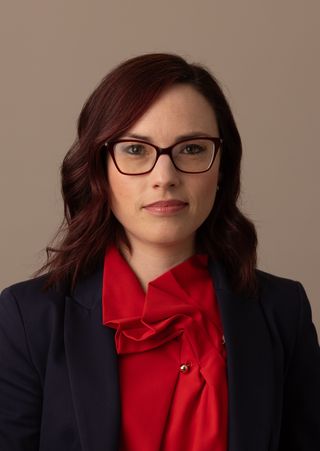
Hayley Channer
Director, Economic SecurityUnited States Studies Centre
Professor Peter Dean
Director, Foreign Policy and DefenceUnited States Studies Centre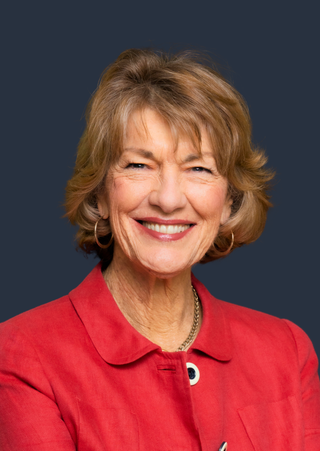
Geraldine Doogue AO
Senior presenterAustralian Broadcasting Corporation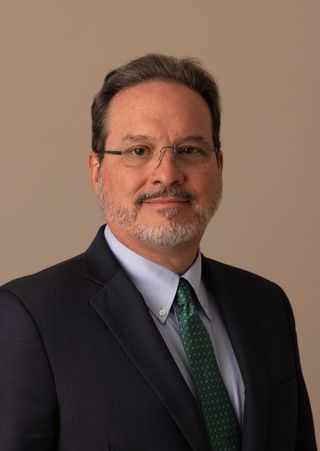
Dr Michael J. Green
Chief Executive OfficerUnited States Studies Centre
Peter Hartcher
Political editor and international editorThe Sydney Morning Herald and The Age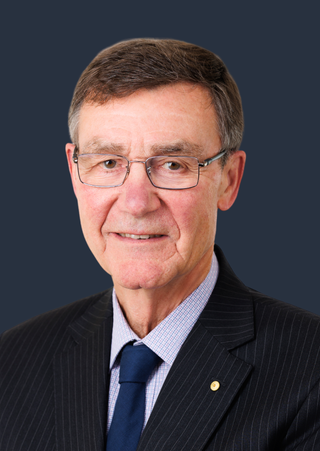
Air Chief Marshal Sir Angus Houston AK, AFC (Ret’d)
Former Chief of the Australian Defence Force
Professor Nobukatsu Kanehara
Executive DirectorSasakawa Peace Foundation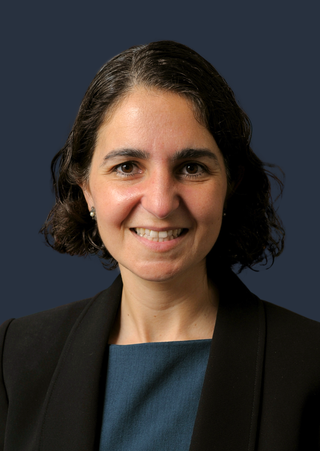
Dr Mara Karlin
Former US Assistant Secretary of Defense for Strategy, Plans, and Capabilities (2021–2023)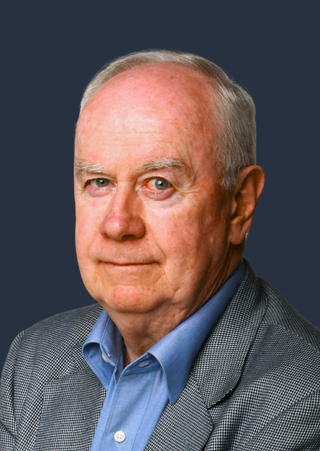
Paul Kelly
Editor-at-LargeThe Australian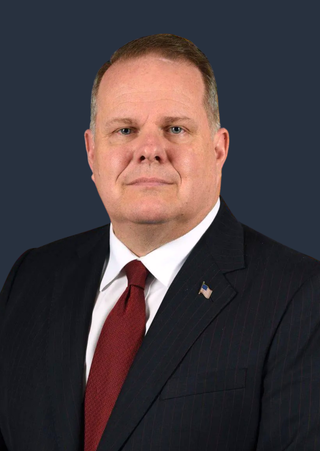
Heino Klinck
Former Deputy Assistant Secretary of Defense for East Asia
Dr John Kunkel
Senior Economics AdviserUnited States Studies Centre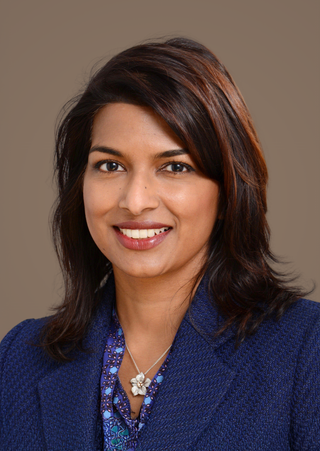
Dr Lavina Lee
Non-Resident Senior FellowUnited States Studies Centre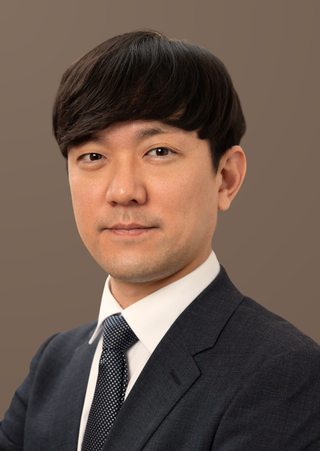
Dr Peter K. Lee
Non-Resident Fellow, Foreign Policy and Defence ProgramUnited States Studies Centre
Katherine Mansted
Executive Director, Cyber IntelligenceCyberCX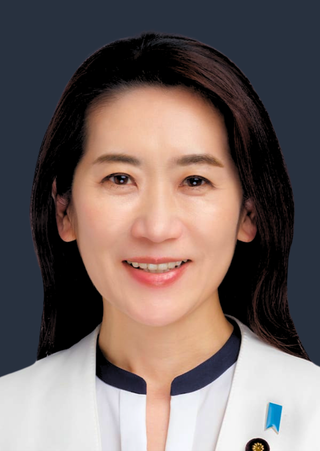
Rui Matsukawa
Member, Japanese House of Councillors
Jared Mondschein
Director of ResearchUnited States Studies Centre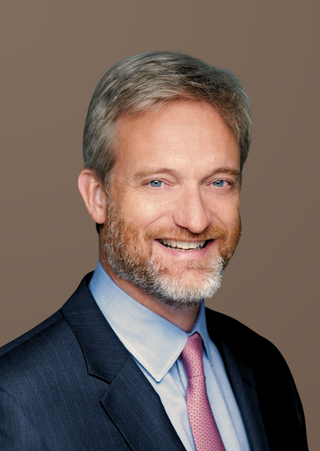
Lester Munson
Non-Resident Senior FellowUnited States Studies Centre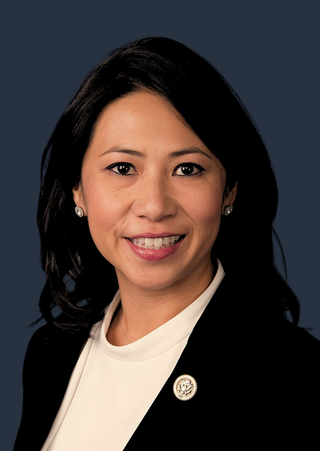
Stephanie Murphy
Former US Congresswoman (2017–23)
Professor Benjamin Reilly
Non-Resident Senior FellowUnited States Studies Centre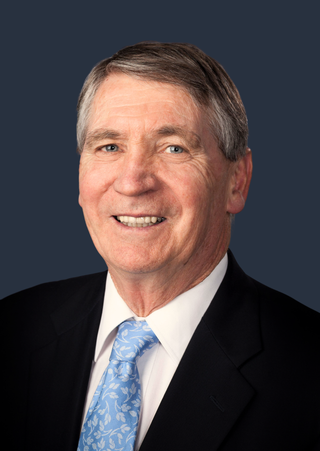
Dennis Richardson AC
Former Secretary of the Department of Defence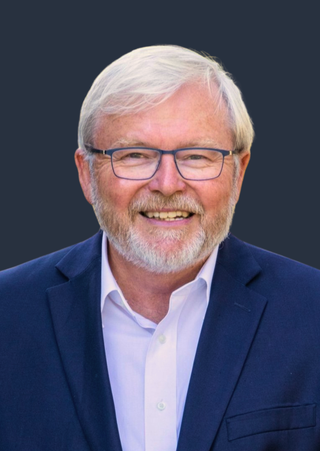
Dr Kevin Rudd AC

Dr Peter Sawczak
First Assistant Secretary, Geostrategy and Partnerships DivisionDepartment of Foreign Affairs and Trade
Kristen Silverberg
Former US Ambassador to the European Union (2008-09)
The Honourable Arthur Sinodinos AO
Former Australian Ambassador to the United States
Cameron Stewart
Chief International CorrespondentThe Australian
Matthew Turpin
Former US National Security Council Director for Asia (2018-19)
Bruce Wolpe
Non-Resident Senior FellowUnited States Studies CentreIn the media
Kevin Rudd insists he is ‘ready’ to work with Donald Trump, despite previous criticisms
ABC
Donald Trump must not turn his back on Australia while China rises: Kurt Campbell
The Australian
Kevin Rudd says he’s ‘ready’ to work with Trump in first speech since US election
Channel Nine News
Trump warned on ‘relentless’ China as Beijing duchesses Pacific
The Australian Financial Review
Kevin Rudd declares ’we’re prepared’ for a second Trump presidency, following controversy
The Daily Telegraph
Rudd operates as ‘foreign minister’ in DC: Top Biden adviser
The Sydney Morning Herald
US leadership ‘indispensable’ even with Trump: Rudd
The Australian Financial Review
Ambassador Kevin Rudd declares ‘we’re ready’ for a second Trump presidency
The Australian
Kevin Rudd breaks silence on President-elect Donald Trump’s election win, declaring Australia is ‘ready’
The West Australian
Australia’s Ambassador to the US Kevin Rudd ‘ready to work’ with US President-elect Donald Trump
Sky News





